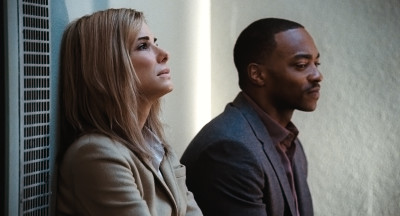
“Our Brand Is Crisis,” David Gordon Green’s latest film, portrays a fictionalized version of the 2002 Bolivian presidential election. Jane Bodine (Sandra Bullock) is a retired American campaign manager who is called upon by the campaign of a former Bolivian president struggling in the polls. She begrudgingly takes the job, only to find that her nemesis campaign manager Pat Candy (Billy Bob Thornton) has been hired to manage the campaign of her candidate’s top rival.
The movie was interesting throughout, despite the fact that its portrayal of the election itself was not very intriguing — at least by American standards. While the storyline was not particularly unique, the well-formed characters and setting added interest.
The comedy in “Our Brand Is Crisis” misses the mark, though. The rivalry between Jane and Pat seems childish and the pranks they pull on each other are corny and unrealistic. The “funniest” scene in the film is only laugh-worthy because all the characters get drunk and have a wild night. It comes off as a desperate attempt at comic relief. The language barrier that comes along with Americans working in Bolivian politics also serves as the source of some laughs, but the jokes are predictable.
The actors all do a good job portraying their characters. Anthony Mackie, for one, does exceptionally well playing the supporting role of Ben, a frustrated campaign worker who first doubts but then ends up trusting Jane.
The chemistry between Bullock and Thornton is unique in that their characters’ relationship is unclear. Jane and Pat are obviously rivals and seem to hate each other, but are still somewhat civil when they met face-to-face. There is an intriguing sexual tension between the two that is never resolved in the end.
Another positive about “Our Brand Is Crisis” is the fact that it is completely set in South America. American theaters don’t see many movies about South America, so the location is a nice change of scenery and provides an interesting twist to a typical political movie.
On the other hand, the main problem with “Our Brand Is Crisis” is the way the film presents Bullock’s character. While Jane’s colleagues are slightly more apathetic toward the situation, Jane is very receptive and fights with the Bolivian people for what they believe in. As a foreigner, she is still able to work with the community to support solidarity.
The resolution of “Our Brand Is Crisis” perpetuates the “white savior” narrative trope in which Western societies are able to solve less privileged cultures’ struggles by infiltrating their ways of life, trampling on the culture’s traditions and values in the meantime.
Many films throughout the last century, from “Pocahontas” to mid-century Westerns, have perpetuated the idea of locals being uncivilized and in need of control or leadership from the West. In today’s world of increased cultural awareness and political correctness, it is not necessary to add an element of Western superiority to an otherwise okay film.














